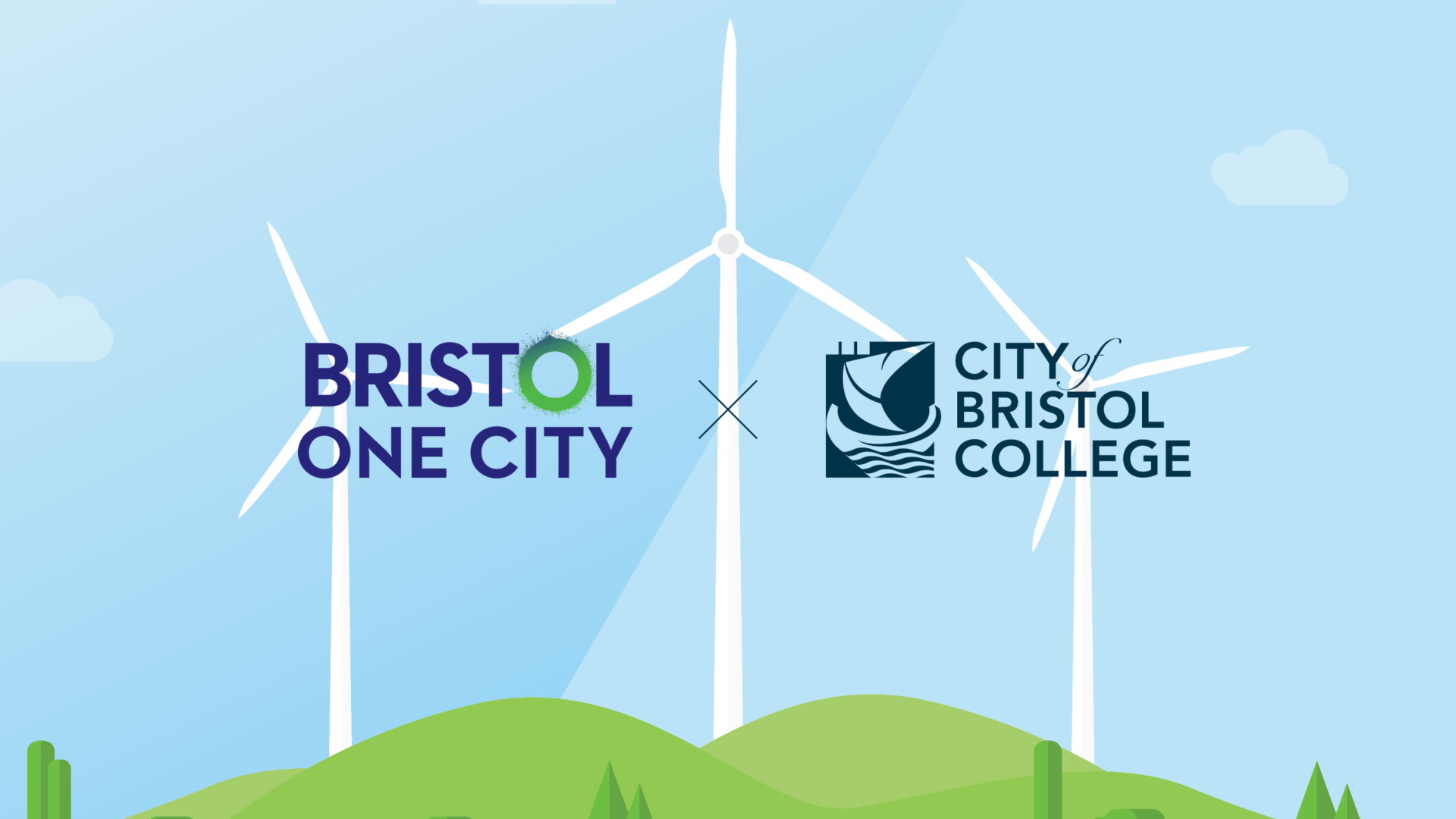Sustainability
We all have a role to play in creating an eco-friendly college. With more than 11,000 students and 800 staff, the impact of our establishment on the environment cannot be ignored.
We are proud of our eco credentials, but we know there is always more work to be done.
Bristol One City Climate Ask
City of Bristol College was proud to sign up to the Bristol One City Climate Ask in 2022. We have committed to our ambition to be net zero by 2030, and have set up a sustainability steering group who will implement our Sustainability Action Plan.
Carbon emissions
Our Carbon Management Plan was developed in conjunction with the Carbon Trust.
We’ve invested in:
- A biomass boiler
- Rainwater harvesting
- Solar thermal panels
- Solar PV panels
- Proximity sensors, meaning that the lights in College buildings only come on when someone enters the room
- Low energy lighting
- Voltage optimization, decreasing our electrical supply to around 220V
- Installing more sophisticated heating and ventilation control systems
You can view our latest Energy and Carbon Report (pdf)
Waste
We recycle 70% of the College’s office waste and are now segregating more and more faculty waste for recycling, including metal, wood and other materials.
We’ve increased our use of recycled paper by 50%, whilst also decreasing our printing and photocopying levels by around 7 million copies per year.
We’ve also put in place a scheme to collect food waste.
Fairtrade
Our food halls, coffee shops and training restaurants all promote Fairtrade and source ingredients and products locally.
Travel
We encourage staff and students to use alternative forms of transport when travelling to and from our centres.
To make travel by bike easier for everyone, we’ve invested in secure bike lockers and locks at our centres. Our Bike Users’ Group also exists to enable cyclists to share information and ideas, while giving cyclists a collective voice to request other improvements.
We are also putting other green travel initiatives in place, including a car-sharing scheme, alternative fuel transport, pool cars system and bus travel discount.
Procurement
We know that procurement is one of the most important factors to think about when trying to minimise an organisation’s environmental impact. When selecting our suppliers, we always think about:
- What kind of materials they use to make their goods
- Where they source their materials
- Whether they have any eco-certification or any awards
- What their travel plans are
South Bristol Skills Academy
South Bristol Skills Academy, our flagship centre serving the South of Bristol, won the 2011 Bristol Civic Society Environmental Award. The eco-friendly building, which was designed specifically for its efficient use of energy with minimum waste, has so far:
- Harvested 1,127,000 litres of rainwater
- Saved 530 tonnes of CO2 with a biomass boiler
- Generated 25kw of heat using solar panels















